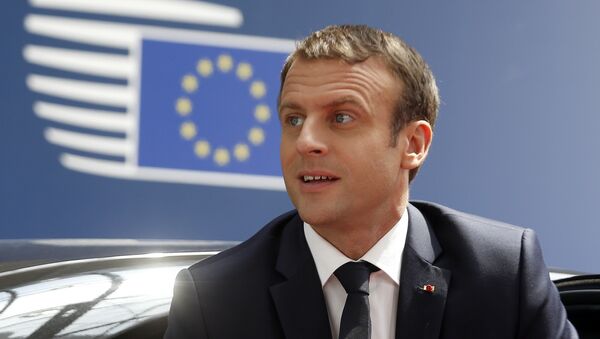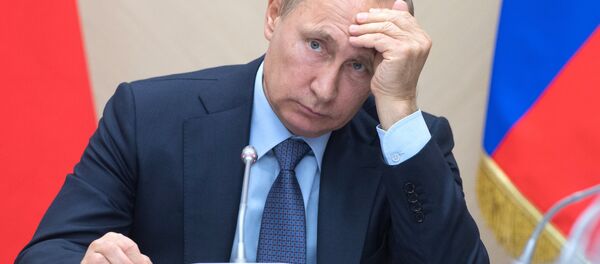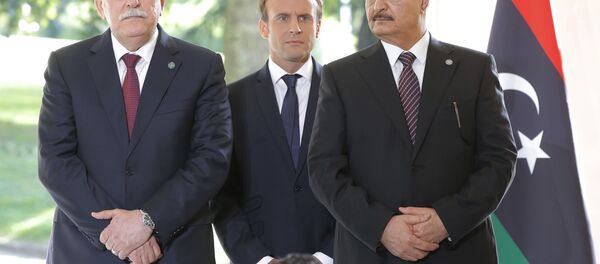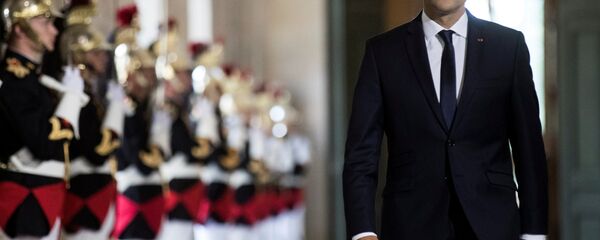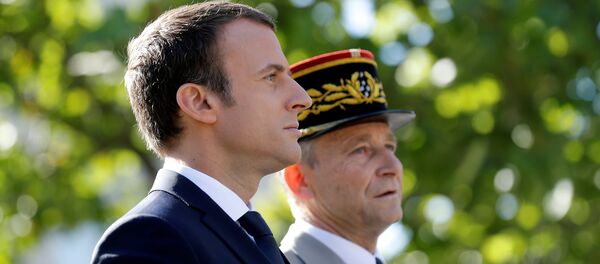UNPOPULAR ECONOMIC MEASURES
Alain Policar, a political philosopher at the French university Sciences Po, told Sputnik that Macron’s popularity dropped because the French were beginning to get a clearer picture of the government’s plans and could see that its policies were not "progressive" in terms of the economy.
"We now better understand the project of this government, and we understand that if it is liberal in the American way in terms of customs, meaning rather progressive, it is certainly not that as far as the economy is concerned. For example, there is another measure – the considerable budget cuts in the research sphere, health, etc.; there was a lack of transparency in the dispute with the army chief of staff, and the constraint resignation of the latter," Policar explained.
Gen. Pierre de Villiers, the French army’s chief of staff, resigned on July 19 over a disagreement on budget cuts previewed for the military. Earlier in July, Macron told Le Journal du Dimanche that if the army's chief of staff and the president of France find themselves in disagreement, it is the army chief of staff that should give in.
The expert said that Macron’s policy was "from the economic point of view totally liberal in the French, European sense, not the American one, meaning the politics, which is looking to deregulate the market and remove the protection that the workers and the state employees can have."
Daniel Boy, a senior researcher at a political science research center CEVIPOF, also suggested that Macron’s "unpopular economic measures" were behind the sudden decrease of Macron’s popularity among the French.
"All the highly unpopular economic measures plus the start like that quickly erases the popularity. There is also no state of grace for the economic measures, put in place in the first three months, which was very rapid," Boy pointed out.
The expert said that the anti-terror law, aiming to codify some elements of the state of emergency and make them part of the general law, was criticized less directly than the economic measures because its consequences were more difficult to understand.
The draft of the anti-terror law was adopted by the Senate last week and will be discussed in the National Assembly in the fall.
The low turnout at June’s legislative elections may also be behind the decrease of Macron’s popularity meaning that the president could count on limited support, Boy suggested.
"First major reason [for popularity drop] is that Emmanuel Macron got the presidency in a comfortable way, but there was a 50% abstention in the legislative election. So we come to understand that what was missing in this election is the working class, the young people whose abstention was enormous. So the election circle on which Macron’s presidency leans is very weak," Boy pointed out.
La Republique en Marche, the party founded by Macron, won over 300 seats in a 577-member National Assembly at the elections held in June.
Boy added that the so-called "grace period," a short period of general satisfaction following the transition to a new administration, has been growing shorter in France as the electorate has been becoming increasingly impatient, "demanding the result."
Policar said that the current government restricted its communications policy in attempt to control what the media said.
"The communication of this government is completely restricted. They select journalists, they want to have full control over what’s being said and that I think is playing against him. All that makes him progressive is contradicted by the strictly controlled communication. And this is what’s surprising in the eyes of many," Policar said.
The expert noted that the French seemed to be dealing with a president who was more authoritarian than he initially appeared.
"We have an authoritarian president who doesn’t not delegate much, who is certainly drunk with success of his unprecedented and unpredictable political performance, with a simple watchword … We have an impression to be dealing with someone more authoritarian than he looked. I think the French people start opening the eyes regarding Macron’s personality," Policar said.
Boy also said that Macron seemed authoritarian.
"It’s the president who rules, who does not explain himself much on the television. In France we have a system that is a bit of a monarchy, everything depends on the personality of that who occupies this office," Boy said.
Boy said that Macron’s future approval ratings would depend on his communication policy and on the state of the French economy.
"I think Macron’s popularity will continue to drop, it also depends on the moment when he will choose to have a communication policy to catch up on this, which is not easy since he chose a very narrow way of communication. But also it depends on the economic indicators," Boy said.
The expert added that new unemployment statistics would be revealed soon and the president may be seen as responsible for them even if technically it would not be so.
According to Boy, economy was a dominant issue in France and Macron’s popularity would continue to decrease if there were no improvements by the end of the year.
